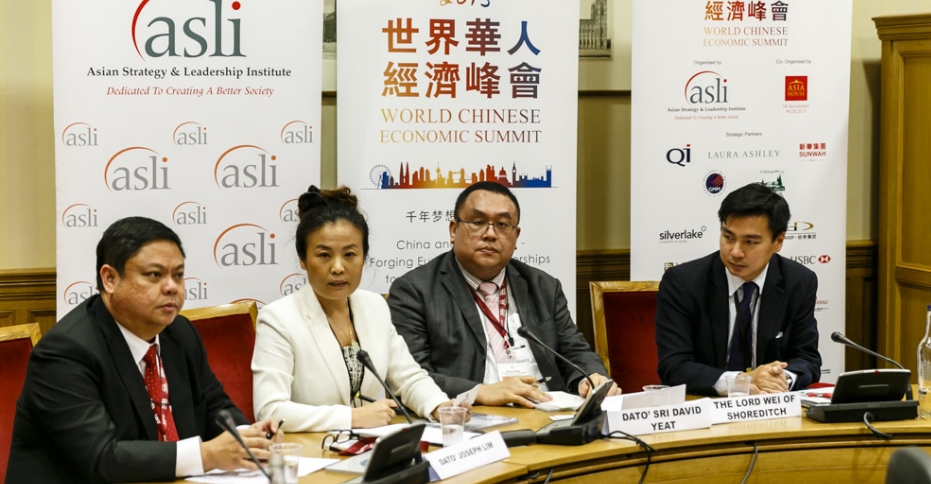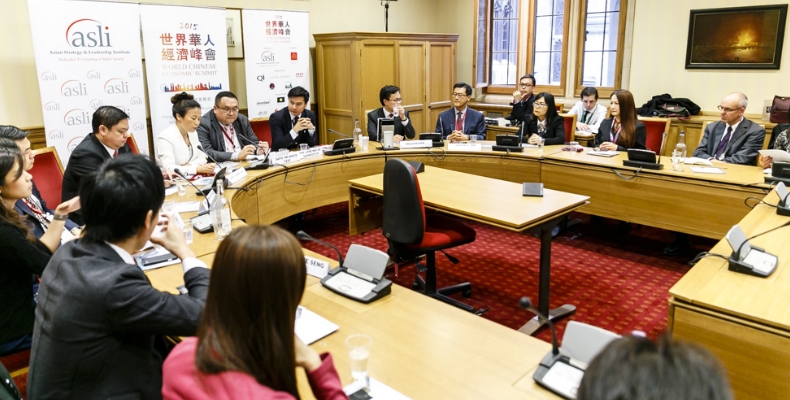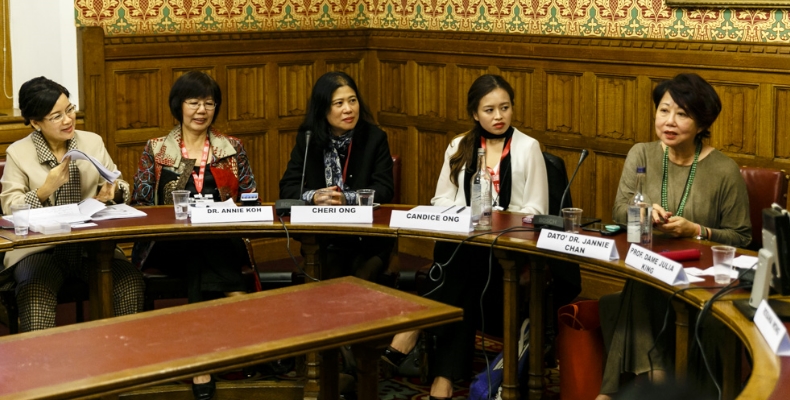Driving commercial and political engagement between Asia, the Middle East and Europe
Driving commercial and political engagement between Asia, the Middle East and Europe

Cooperation must replace competition if the full potential of China’s One Belt, One Road economic policy initiative is to be realised, a panel of young entrepreneurs at the 7th World Chinese Economic Summit was told.
“It’s a win-win for everybody,” Malaysian businessman Sri David Yeat told the rountable discussion titled ‘Sharing Experience and Creating Prosperity.’
“We will all share the benefits. China is a place full of business opportunities for you all,” said Yeat, who is Chairman and Chief Executive Officer of GD Holdings Sdn Bhd, as well as World Chinese Economic Forum Co-Chairman.
“In the future, we need not just competition but we need to open our arms and embrace each other and seek opportunities together. China is rising peacefully. Cooperation should replace competition.”
China’s One Belt, One Road initiative is the name given to its westward drive to develop a swathe of major energy, infrastructure and communications projects across Central, West and South Asia and beyond, as far as Greece.
Speakers at the panel discussion at the House of Lords in Westminster, London, told young business leaders that passion, innovation and drive would overcome anxieties about financing and intellectual property protection when they started to build their own companies and engage with China.

Young entrepreneurs are pictured at a roundtable discussion held at the House of Lords during the World Chinese Economic Summit. Photo by Miles Willis
“There is a sense of excitement in the air,” said Lord Wei of Shoreditch, vice chairman of Britain’s All Party Parliamentary China Group.
“There are opportunities as never before but some challenges,” he added, warning that investors in China needed to develop relationships carefully and not to expect overnight successes.
He also said that Western companies needed to build up their liquidity as part of their preparations to enter the Chinese market – a move that could be facilitated by Stock Exchanges in Europe – while Chinese companies needed to encourage more diversity on their boards.
“We need people in China to have people on their boards who can explain how things work in the West,” Lord Wei said.
ASEAN countries could play a key bridging role between the West and China, he said.
“Entrepreneurs are great at getting things started but getting over the line is what is important,” Lord Wei added.
Cheryl Yeoh, the founding chief executive of the Malaysian Global Innovation & Creativity Center (MaGIC), urged young entrepreneurs not to be inward-looking but to develop a global mindset.
“You need to build connections across all countries – Myanmar, Vietnam, China – and you have to leverage technology. In today’s world if you don’t leverage technology into all your industries, you will be dead in two years.”

The first day of the World Chinese Economic Summit took place at the House of Lords in London. Photo by Miles Willis
Other speakers, including Dr. Wang Huiyao, the President of the Center for China and Globalization, Joseph Lim, Founder and Managing Director of Malaysia’s Global Green Synergy Sdn Bhd, Goh Chee Seng, Group Chief Corporate Officer of the Macrokiosk Group in Malaysia, and Jason L. Ma, the author of Young Leaders 3.0 which profiles a range of young achievers and Founder, CEO & Chief Mentor of ThreeEQ Inc., stressed the importance of passion and innovation in building businesses.
“Stay focused and work with passion and you will become no.1 in the world,” said Lim, whose companies in China lost money for the first 10 years of their 15 years of operation.
“And you must know your USP – without that you cannot succeed in the market,” he added.

Pictured are the panellists at a womens’ roundtable discussion that took place simultaneously with the Young Entrepreneurs’ roundtable at the House of Lords. The theme was ‘Creating opportunities for women entrepreneurs and family-owned businesses.’ Photo by Miles Willis
David Cowell is a freelance business reporter.
To read more stories on the World Chinese Economic Summit click here.